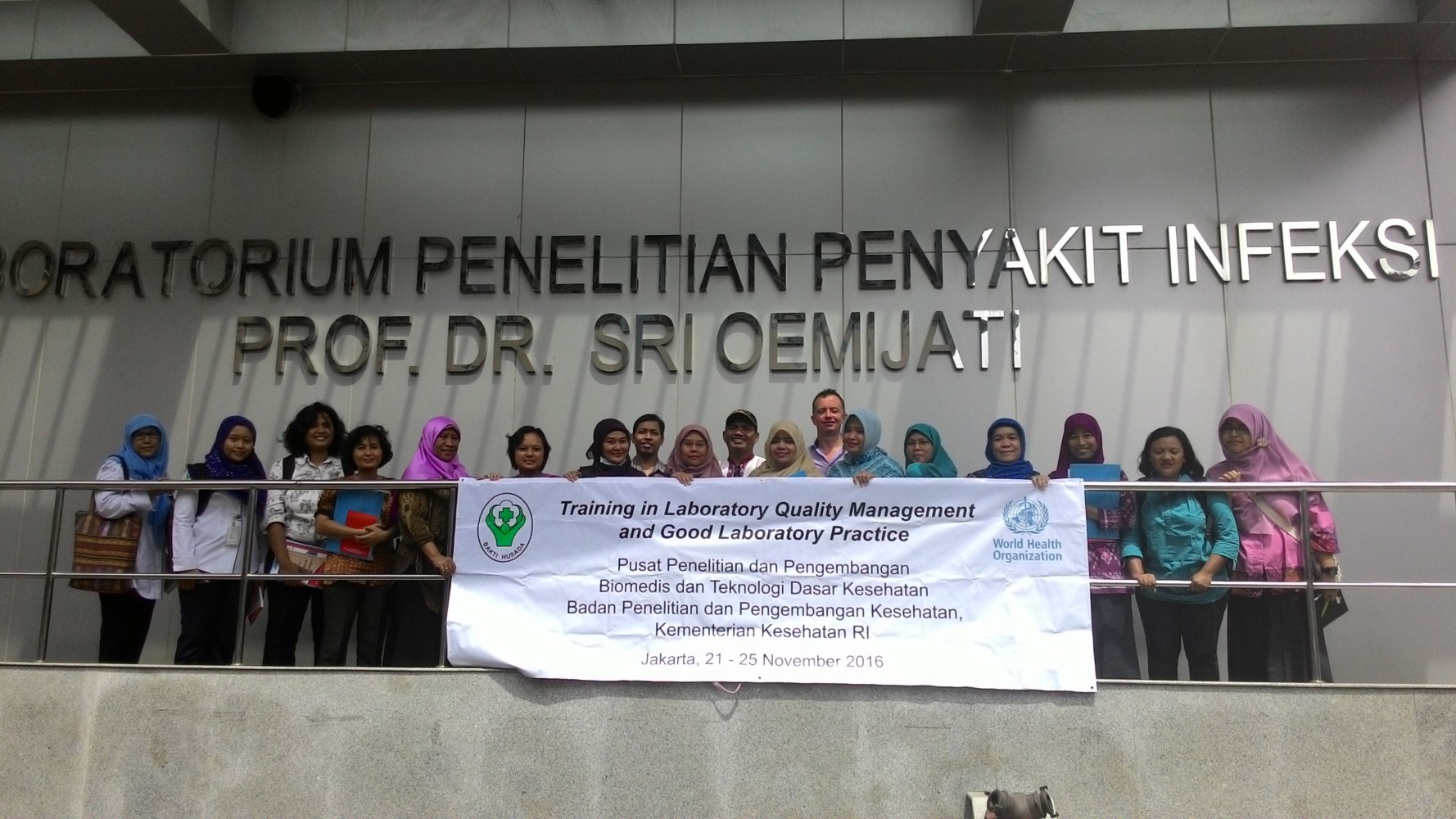05 Jan 2017
WHO influenza centre shares expertise with scientists from the Asia and Pacific region
Written by Dr Michelle Chow, WHO Collaborating Centre for Reference and Research on Influenza
Scientists from the Asia and Pacific region have benefitted from expertise from the WHO Collaborating Centre for Reference and Research on Influenza at the Doherty Institute with Educator, Professor Patrick Reading recently holding training programs in Papua New Guinea, Fiji and Indonesia.
In addition to its role in analysing influenza samples and providing advice to WHO on vaccine composition, another key component of the Centre’s function is to provide training in influenza surveillance techniques to regional laboratories.
By assisting WHO National Influenza Centres (NIC) and other laboratories to further develop their technical capabilities, the Centre further supports and strengthens the ability of the WHO Global Influenza Surveillance and Response System (GISRS) to monitor the spread and evolution of influenza viruses.
The ‘Influenza-like Illness Surveillance Workshop’, held in Goroka, Papua New Guinea was attended by approximately 20 participants representing a number of provinces in Papua New Guinea. This workshop focused on developing plans to strengthen existing surveillance sites, and to introduce new sites, with the overall aim of enhancing surveillance for human and avian influenza in Papua New Guinea.
Patrick also visited the NIC at the Fiji Centre for Communicable Disease Control (Mataika House), to facilitate discussions regarding the implementation of cell culture and virus isolation at the site in 2017.
This involves developing plans to modify existing laboratories and procure appropriate equipment and reagents. He also provided practical training in genetic analysis of influenza viruses to staff members at Mataika House during his visit.
The ‘Introduction to Laboratory Quality Management and Good Laboratory Practice’ workshop, held in Jakarta, Indonesia, was attended by 24 laboratory managers and technicians from different provinces in Indonesia. This five day workshop looked at understanding and applying principles of quality management and good laboratory practice in the context of a diagnostic laboratory.
The workshop consisted of a number of lectures and tutorials, as well as a laboratory-based component which focused on the application of good laboratory practices when using PCR as a diagnostic tool for influenza and other viruses.
Through these trainings, Professor Reading has been able to share and provide knowledge regarding specimen collection, transport and storage, laboratory testing procedures and quality assurance with a broad range of scientists and clinicians across the Asia and Pacific region.
In addition to theinvolvement in workshops overseas, the Centre also hosted three visiting scientists from Cambodia. During their two weeks at the Centre, Ms Phally Vy, from the National Public Health Laboratory, Phnom Penh, Cambodia and Ms Kimlay Chea and Ms Sokhoun Yann, from the Institut Pasteur, Phnom Penh, Cambodia, were trained by many of the staff at the Centre in laboratory techniques for the detection and characterisation of seasonal influenza viruses, including growth of influenza viruses in cells and eggs, immunological characterisation, genetic analysis and data management.
Ms Vy said she found great value in the training as her laboratory is working towards designation as a WHO National Influenza Centre and she was now familiar with a number of new techniques, some of which will ultimately be introduced into her laboratory. Ms Chea commented that she was very pleased to diversify her skill set and felt this background would assist with her goal of rotating between different divisions of her current laboratory.
Following this busy period, Professor Reading said that he and Centre staff were looking forward to providing further training opportunities to scientists in the global influenza surveillance network in 2017.
“Given the diverse diagnostic and reference laboratories in the region, programs to strengthen laboratory-based surveillance of influenza also provide an important framework for improving diagnostic laboratories in general. The scientists working in regional laboratories deal with many (often unique) challenges, however there is a great sense of collegiality, engagement and a desire to continually improve the quality of their work,” he said.

Workshop participants in Indonesia.


